Summer offers an abundance and variety of fresh herbs that are so much better to cook with than the dried herbs of Winter. There are many ways to preserve fresh herbs for year-round cooking, and making herbal salts is one of the easiest preservation methods. Keep these salts by your stove for a burst of Summer flavor!
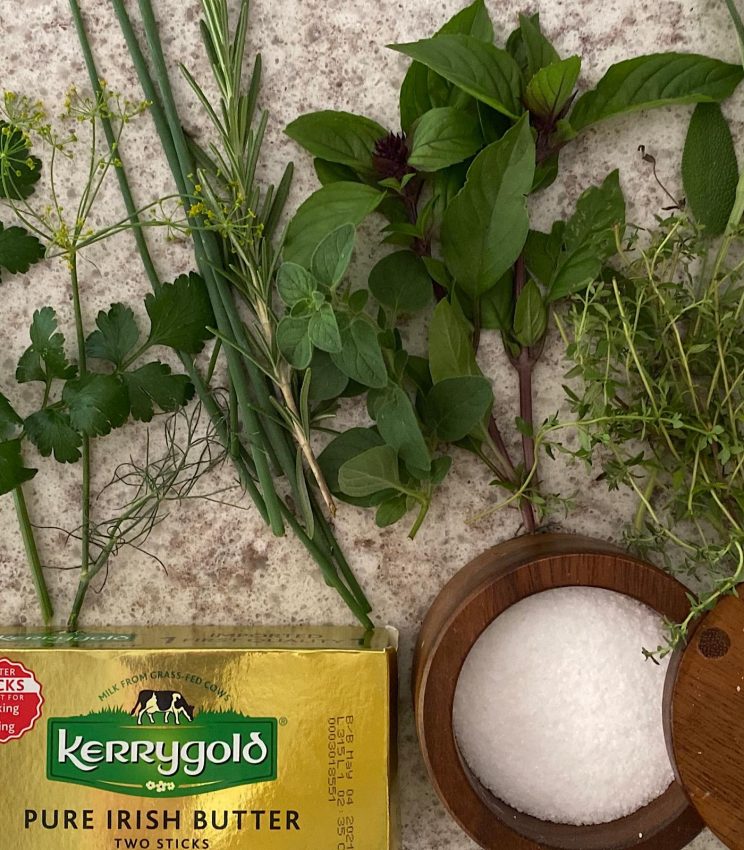
Jump to: RECIPE | Which Salt to Use? | How to Store Herbal Salts | Which Herbs Work Best? | Basic Method and Blends
This post may contain affiliate links. As an Amazon Associate, I also earn from qualifying purchases. You can read our disclosure information here–
What are Herbal Infused Salts?
Basically, herb salt is just a sea salt or a kosher salt that is combined with chopped fresh herbs and then dried together as a blend. They can be stored indefinitely in a tightly sealed jar and then used in their dried state.
The salt draws out all the moisture from the herbs and also acts as a preservative. The oils present in the herbs are infused into the salt in a way that brings out the flavor and intensity of the herb much more than if just using purchased dried herbs.
Herbal salt is sometimes used as a finishing salt, but I typically use herb salt at the beginning or in the middle of my cooking so that the herbs are imparting their flavor throughout the cooking process.
Just remember that it is a “salt” and you don’t want to overdo it. Taste as you go!
What Kind of Salt is Best to Use?
Even though the chemical makeup of all salts is sodium chloride, there are distinctions that will make a difference in your cooking.
Some salts are more processed than others (and may have iodine or anti-caking agents), some salts have more minerals, and some salts will differ in their texture.
When making homemade herbal salt the texture of the salt is probably the most important variable. Table salt is very fine and sea salt and kosher salt are coarser with less uniform crystals.
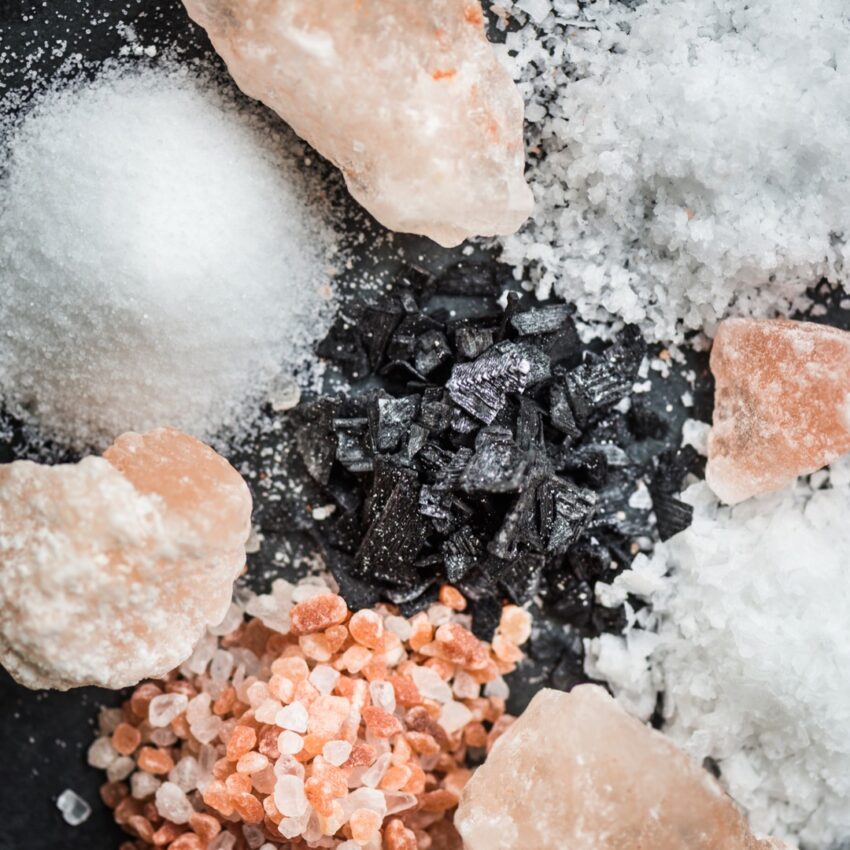
- Sea salt tends to have the highest range of minerals, which can add nuanced flavors.
- Table salt is the most processed and has additives that you may not want, as well as being so fine that it doesn’t combine with chopped herbs as well.
- Kosher salt is less expensive and has larger granules.
I like to use coarse sea salt for the mineral content and then mix it in with the herbs before chopping them. Chopping or grinding them together allows all of the herbal oils to combine with the salt and results in a finer salt in the end.
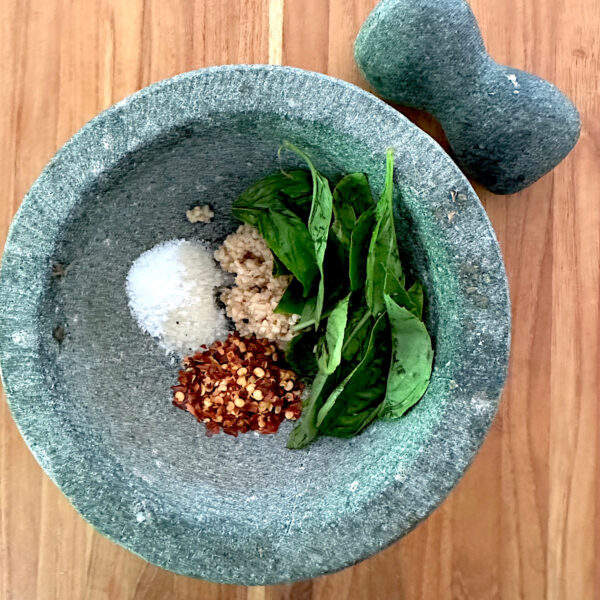
Which Herbs Work Best in Salts?
I find that the herbs with the sturdier leaves (or needles) tend to keep the fresh flavor longer. Soft-leaf herbs like parsley or basil can work, but preserving the softer herbs as butters or freezing in ice cube trays is often a better preservation method.
Parsley and basil and some of the other soft leaf herbs have very volatile oils, which is why they quickly lose flavor when dried.
The best herbs to use are the ones that fit your cooking style. Do you cook a lot of Mexican food? If so, maybe you might want to try Mexican oregano and/or cilantro and some lime zest.
The classic herbal salts are made with the Mediterranean herbs like rosemary, sage, thyme, and oregano. Lemon zest is often added and dried along with the herbal salts.
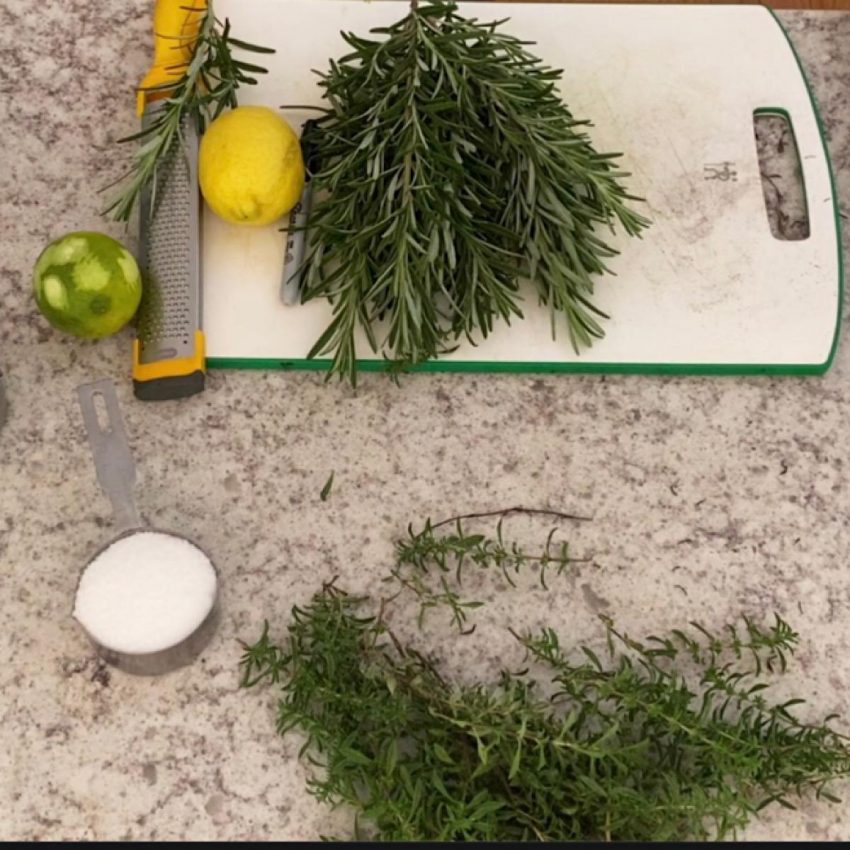
I like to cook seafood and use a lot of dill. I preserve the tender dill leaves themselves in a compound butter blend, but the dill “seeds” make a good herbal salt.
Another favorite way to use infused salts is as a rimming salt for a cocktail. This Fall I used dried tomatoes which I ground up and made into this delightful rimming salt for a tomato martini or a bloody mary.
Basically, use the herbs that you enjoy cooking with and those that are available to you from your garden or the farmers markets.
How to Store Herbal Infused Salts
Store the herbal infused salts in an airtight container. An 8-oz canning jar is the perfect size for this recipe.
You can store it in the pantry, a cool dark place or the refrigerator. An airtight container will prevent it from getting gummy without having to use any additives. Salt is a preservative so it will last indefinitely as long as everything was thoroughly dried.
Basic Method and Favorite Salt Blends
When a good, mineral-based sea salt is mixed together with herbs, spices, citrus, or other aromatics, it enhances both food and drink in many ways.
In general, mixing salts for sweet or savory cooking starts with a base of 1/2 cup of a coarse salt of your choice, and involves drying the combinations if using fresh ingredients.
Some typical ratios of salt to flavoring are listed below. Just know that these “formulas” are very flexible and you can change the ratios or the blends to your liking without fear of failure. They make great gifts for any occasion!
- For Garlic and Herb Salt: 1/2 cup sea salt + 2 minced garlic cloves + 1/2 to 2 cups ”loosely packed” minced fresh herbs (like sage, rosemary, oregano, thyme, tarragon, chives, etc.)
- For Chile Pepper Salt: 1/2 cups sea salt + 1/2 tsp. ground black pepper + 1 + minced Chile peppers (from mild peppers to habaneros)
- For Citrus Salt: 1/2 cup sea salt + zest of 1 grapefruit, or 2 lemons, or 3 limes
- For (sweet) Baking Salt: 1/2 cup sea salt + seeds of 1 vanilla bean
My favorite salt of all is a chile lime salt, which popular in Mexican street food. The brand name is Tajin, but here is a DIY recipe for chile lime salt which I think is infinitely better than the commercial product.
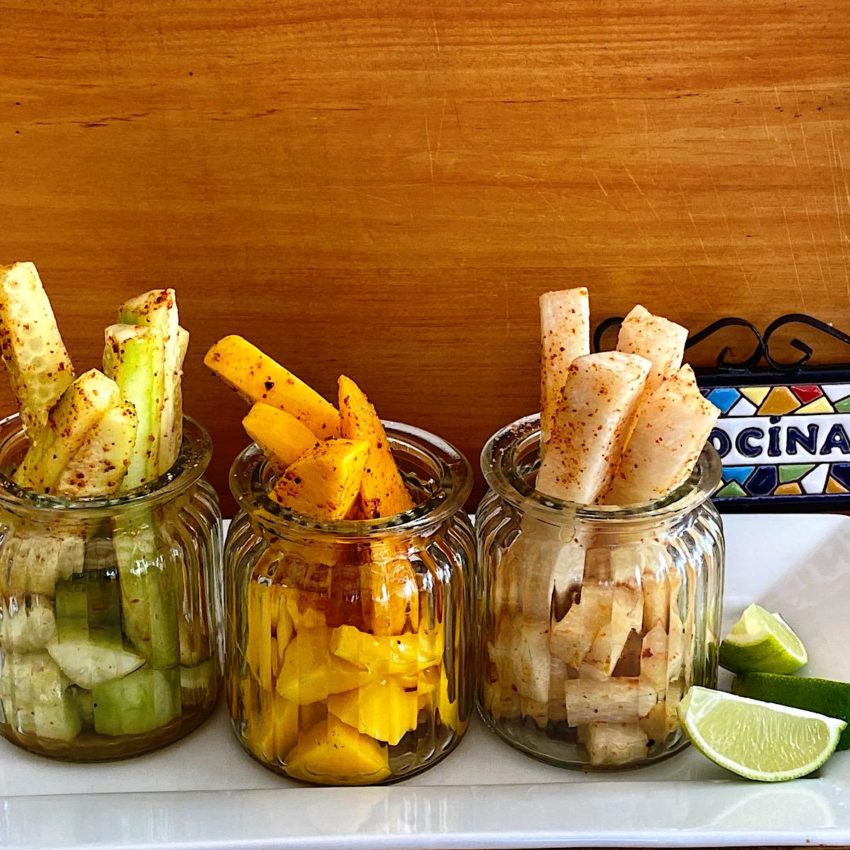
More Methods for Preserving Summer’s Produce:
- Easy Green Tomato Pickles
- Low Carb Freezer Tomato Sauce with Sumac
- Mediterranean Tomato Sauce for the Freezer
- Freezing Compound Butters made with Fresh Herbs
- Red Pepper & Eggplant Spread for Cheese Trays & Sandwiches
- Homemade Dandelion Jelly
- Salt & Vinegar Cucumber Chips
- Quick & Easy Pickled Onions
- How to Make Shrub Syrups (cold process vs. hot)
- Sun dried tomato butter
Recipes that use the savory salts:
- Slow Carb Pozole Stew
- Hoppin John for New Years
- Slow Carb Crockpot Chile
- Stuffed Bell Peppers with Harissa
Herbal Infused Salts
Equipment
Ingredients
- ½ Cup Coarse sea salt or kosher salt
- 2 Cups Fresh herbs Loosely packed
- 1 Tbsp Lemon zest Or lemon peel
Instructions
- Preheat the oven to 200 ° F. In a large bowl mix the salt, lemon zest and the herb leaves together. Pour mixture onto a cutting board and use a sharp knife to chop/mince the herbs and salt. The salt will allow you to incorporate the herbs better and chop the herbs without them flying all over. Alternatively use a food processor to chop the herbs and salt together, but make sure not to over-process or you will get a paste.1/2 Cup Coarse sea salt, 2 Cups Fresh herbs, 1 Tbsp Lemon zest
- Line a cookie sheet with a piece of parchment paper and spread the salt out to dry for 24 to 48 hours if you are in a warm dry region. If you are in a humid climate, place the cookie sheet into the oven on it’s lowest heat (usually 200° F) and let dry for 1-2 hours. Check occasionally to ensure it doesn’t burn (set a timer)
- After the herbal salt is dry, set it on the counter to cool. When cool pour it into a tightly sealed container and store in your pantry or a cool dark place. Use as you would a regular salt in cooking being careful not to oversalt. Start with a little, taste as you go along until it is to your liking.
- Recipe can easily be doubled or halved.

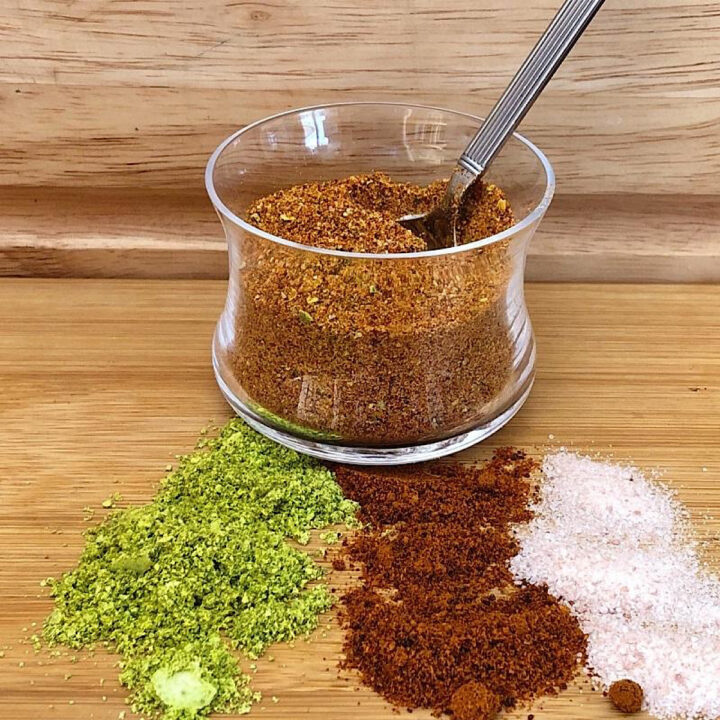
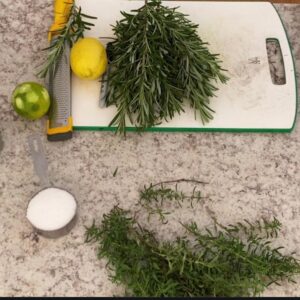
Thanks for the clear instructions! I’m going to make different herbal salts and give them as small Christmas gifts. Here in South Africa we have a summer Christmas, thus the fresh herbs are ready in my garden!
I’m so glad you found it helpful. Have a great Summer Christmas!